About WHU
The 11th WHU Distinguished Alumni
Seven distinguished alumni were honored at Wuhan University's 11th Distinguished Alumni Award Ceremony on November 29.
The Distinguished Alumni Award, the highest honor for the university's alumni, is presented biennially, with no more than eight individuals recognized in each selection round.
Spotlight on the 11th WHU Distinguished Alumni
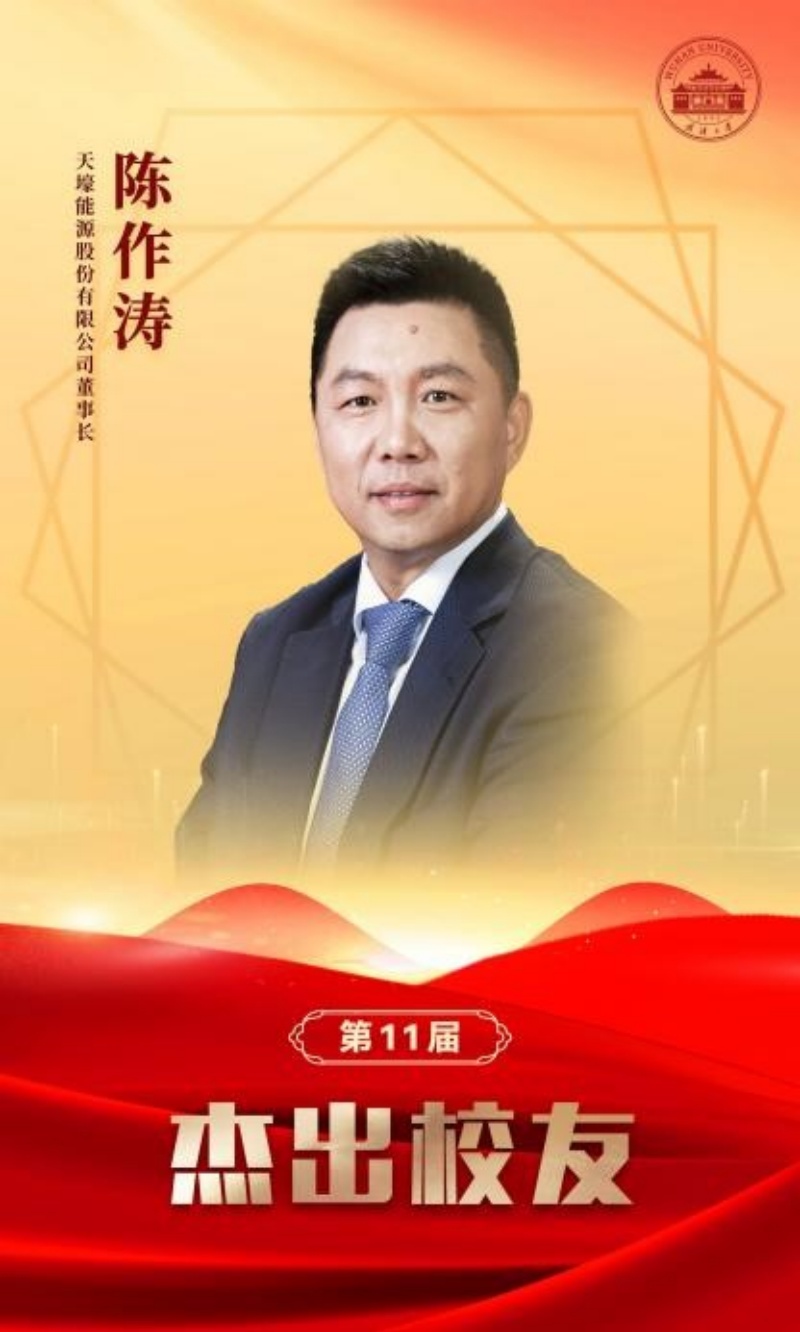
Chen Zuotao
Born in 1970, Chen Zuotao graduated with a bachelor's degree from the School of Management at Wuhan University in 1992. He is the chairman of Top Resource Energy Corporation and Giantec Semiconductor Corporation. With extensive experience in investment and corporate management, Chen focuses on strategic emerging industries such as new energy, new materials, semiconductor chips, and quantum technology. His contributions have significantly advanced resource conservation, environmental improvement, and the industrialization of China's scientific achievements.
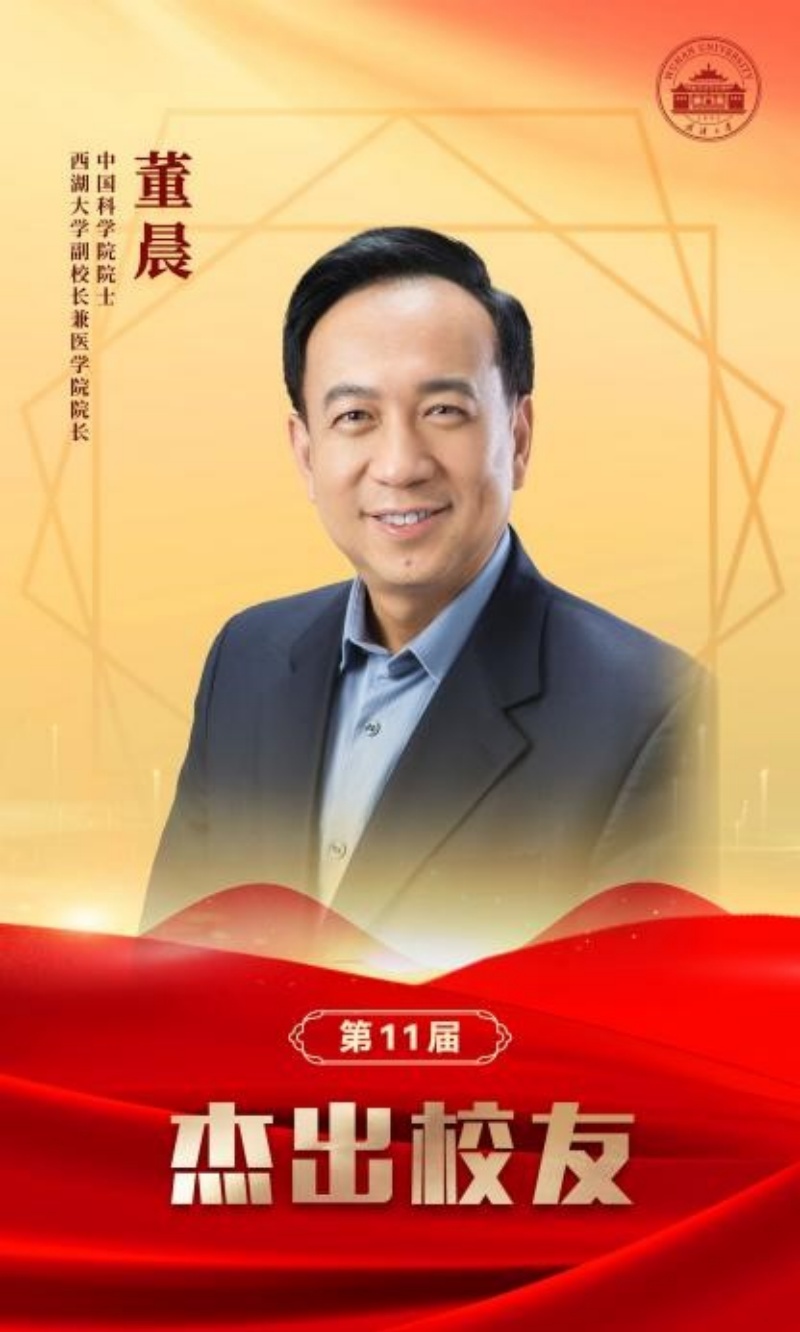
Dong Chen
Born in 1967, Dong Chen obtained his bachelor's degree at the College of Life Sciences, Wuhan University in 1989. Elected to the Chinese Academy of Sciences in 2019, he is the vice-president and dean of the School of Medicine at Westlake University. A globally renowned immunologist, Dong has made groundbreaking contributions in T-cell differentiation and autoimmune diseases. His identification of Th17 and Tfh cell subsets has been recognized among the 20 most significant immunology discoveries of the past two decades. His work has provided new insights into immunotherapy for autoimmune diseases and cancer, with many findings already translated into clinical applications, greatly impacting medical development and human health.
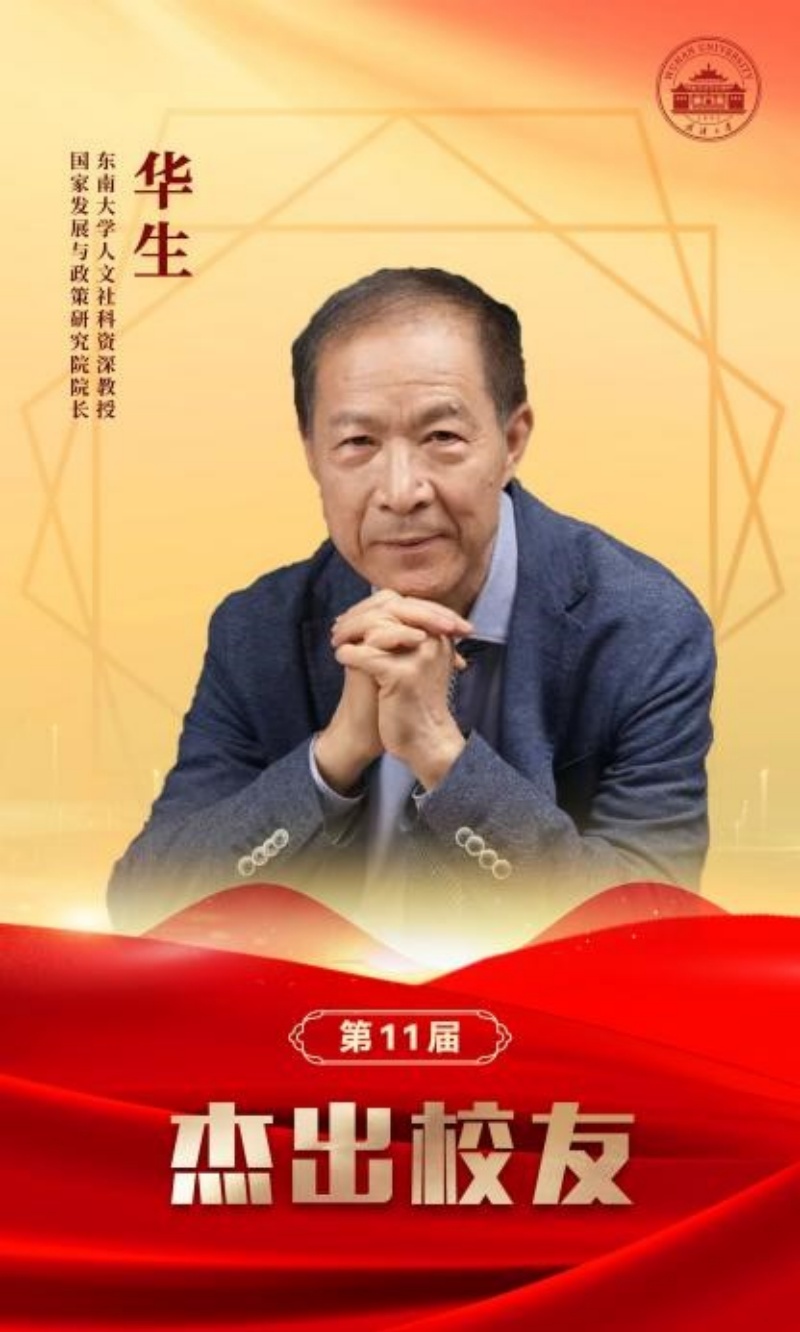
Hua Sheng
Born in 1953, Hua Sheng earned his doctorate from the Economics and Management School at Wuhan University in 2000. He is currently vice-president of the China Society of Economic Reform, dean of the National School of Development and Policy, and honorary president of the School of Economics and Management at Southeast University. Hua is also a professor at Wuhan University and chair of the Academic Committee at WHU's Dong Fureng Institute of Economic and Social Development. He played a leading role in driving major economic reforms in China, including the dual-track pricing system, the creation of the state-owned asset management system, and the split-share structure reform. Hua is regarded as one of the most influential economists in China's securities market.
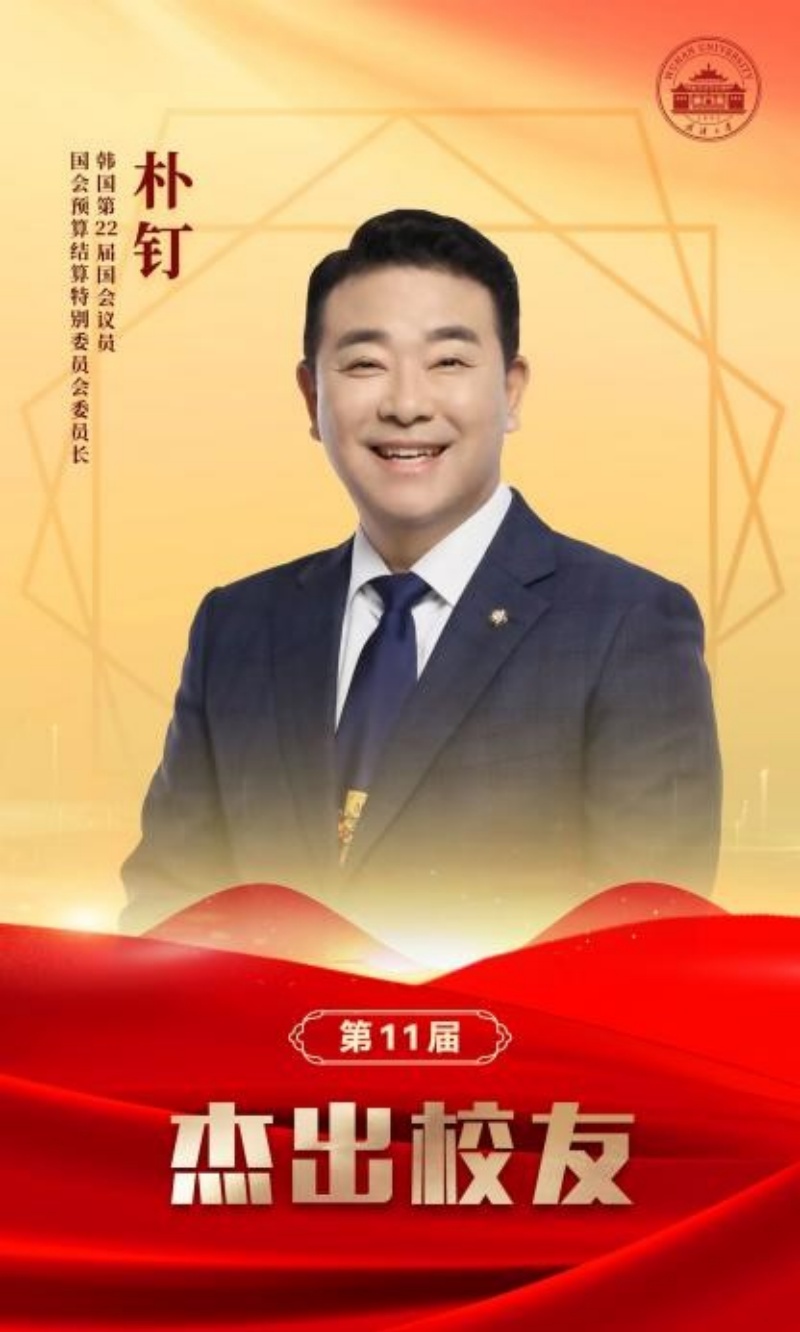
Park Jeong
Born in 1962 in South Korea, Park Jeong earned his doctorate from the School of History at Wuhan University in 2011. He is a member of South Korea's 20th, 21st, and 22nd National Assembly. Park has tirelessly promoted China-South Korea exchanges and cooperation in trade, culture, and tourism. His efforts have contributed to the establishment of a new Northeast Asia cooperation framework. A strong supporter of his alma mater, Park founded the Wuhan University Korean Alumni Association and served as its first president.
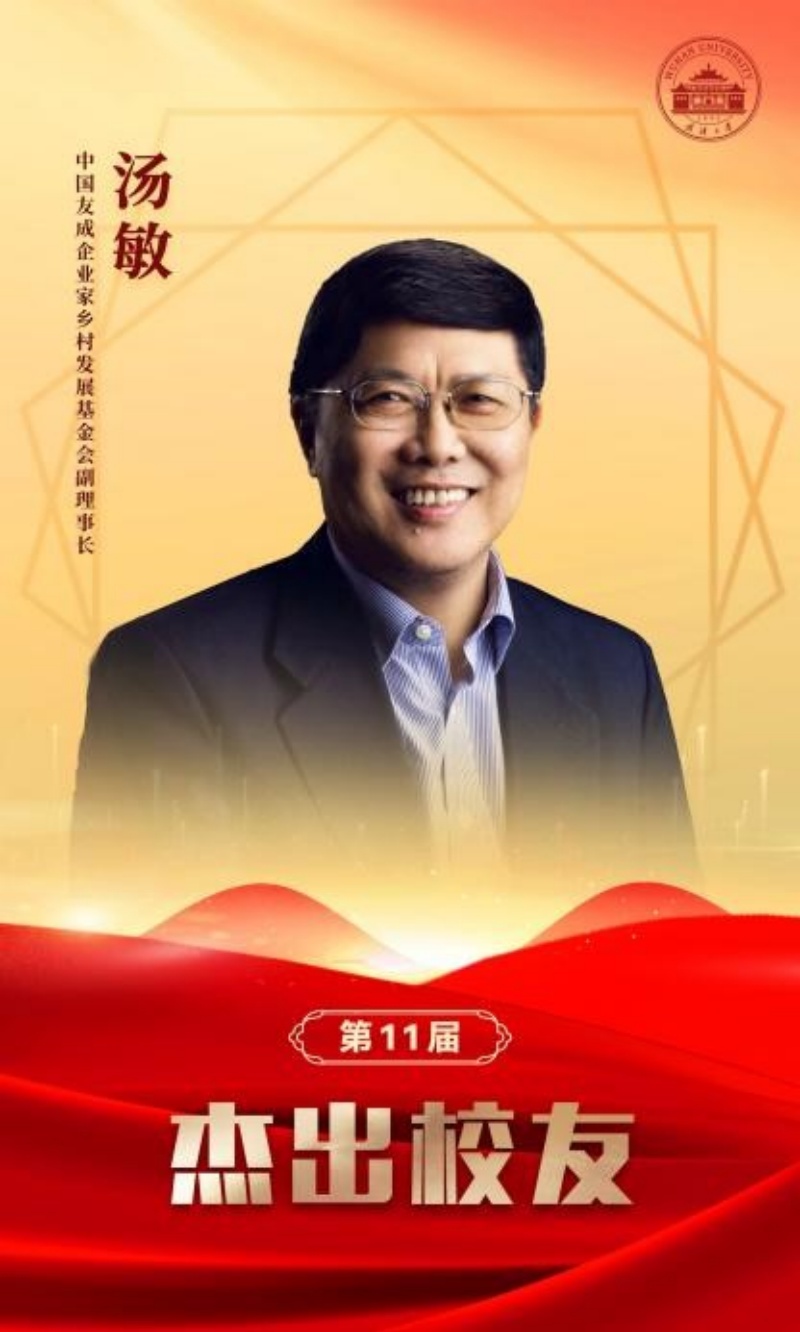
Tang Min
Born in 1953, Tang Min obtained his bachelor's degree in mathematics at Wuhan University in 1982 and served as a teaching assistant in the Department of Economics and Management from 1982 to 1984. He is currently the vice-chairman of the China Social Entrepreneur Foundation. Tang has held roles such as economist at the Asian Development Bank's Development Research Center and chief economist at its representative office in China. He served as a counselor to the State Council from 2011 to 2024. Tang has made substantial contributions to economic policy and social development, including spearheading China's university enrollment expansion policy in 1998. Recently, he has focused on empowering emerging and traditional industries with new quality productive forces and promoting rural education and industry development.
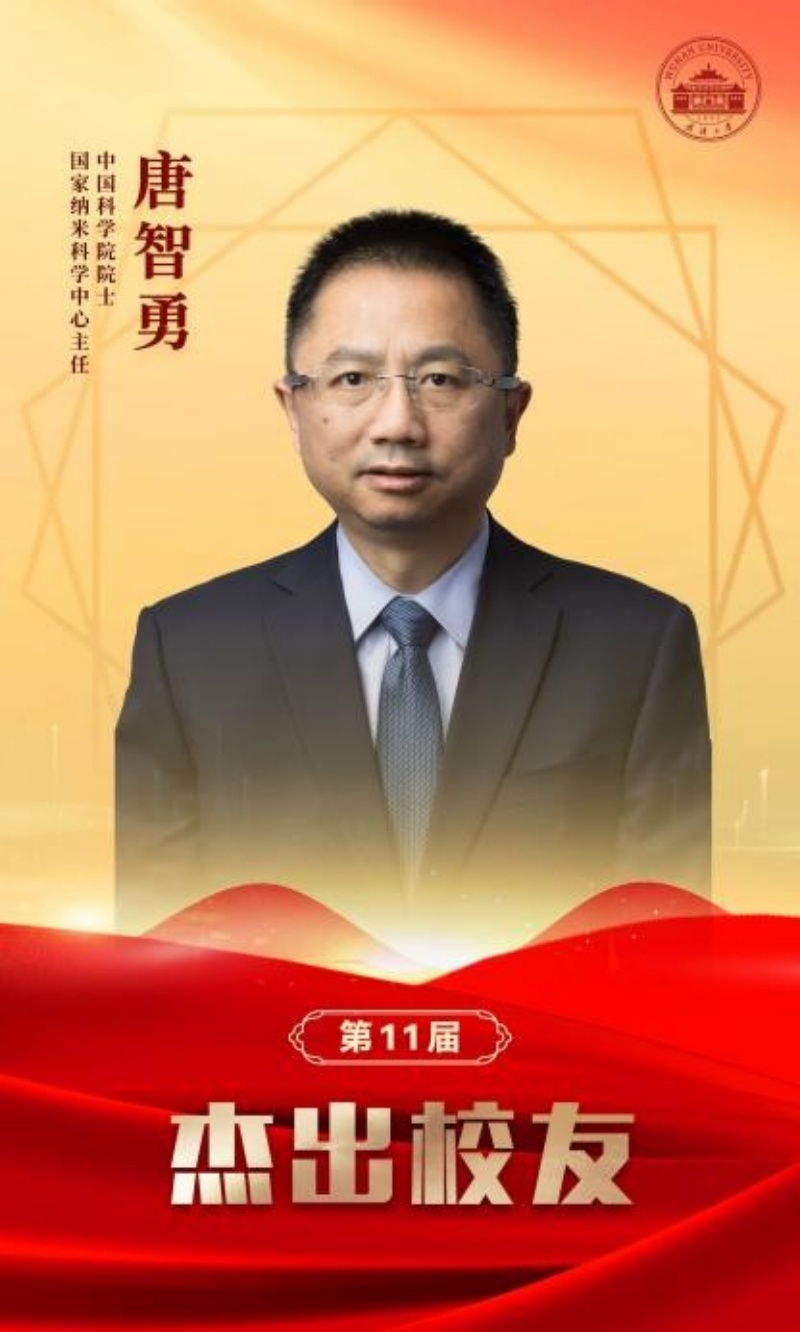
Tang Zhiyong
Born in 1971, Tang Zhiyong obtained both his bachelor's and master's degrees at the Department of Environmental Science, Wuhan University. Elected to the Chinese Academy of Sciences in 2023, he is the director of the National Center for Nanoscience and Technology. Tang has dedicated his career to nanoscience self-assembly and has published over 200 papers in international academic journals. As the primary contributor, he has received multiple prestigious awards, including second prize in the National Natural Science Award. His work has significantly advanced the theoretical foundation and practical applications of nanoscience self-assembly systems.
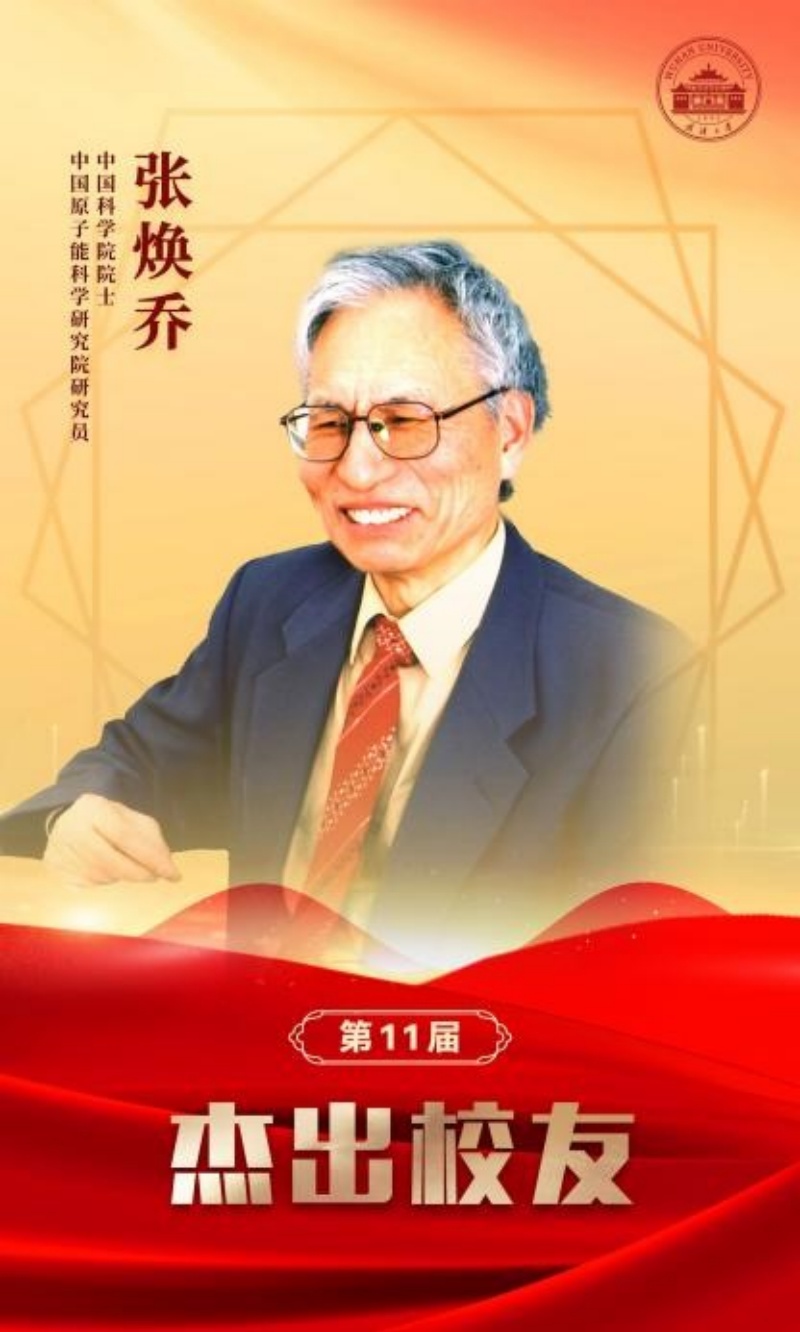
Zhang Huanqiao
Born in 1933, Zhang Huanqiao earned his bachelor's degree from the Department of Physics at Wuhan University in 1955. Elected to the Chinese Academy of Sciences in 1997, he has served as a researcher at the China Institute of Atomic Energy, director of the Scientific Committee at its Institute of Nuclear Physics, and a standing member of the Technology Committee of the China Institute of Atomic Energy. Zhang has dedicated his life to nuclear physics, making significant achievements in neutron physics, fission physics, and heavy-ion physics. His work has earned him numerous honors, including third prize in the National Natural Science Award and the Science and Technology Progress Award from the Ho Leung Ho Lee Foundation.


